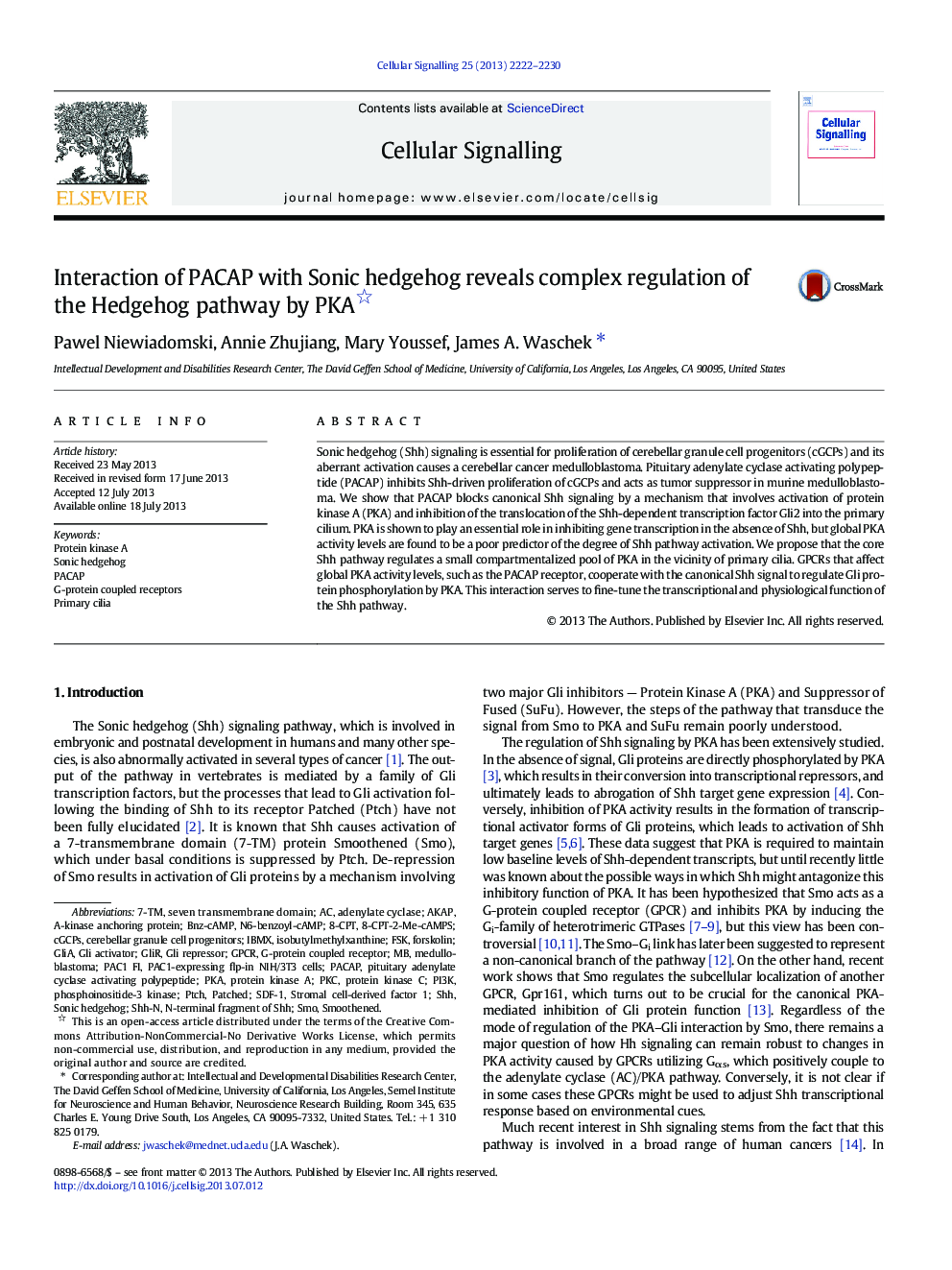| Article ID | Journal | Published Year | Pages | File Type |
|---|---|---|---|---|
| 10815461 | Cellular Signalling | 2013 | 9 Pages |
Abstract
Sonic hedgehog (Shh) signaling is essential for proliferation of cerebellar granule cell progenitors (cGCPs) and its aberrant activation causes a cerebellar cancer medulloblastoma. Pituitary adenylate cyclase activating polypeptide (PACAP) inhibits Shh-driven proliferation of cGCPs and acts as tumor suppressor in murine medulloblastoma. We show that PACAP blocks canonical Shh signaling by a mechanism that involves activation of protein kinase A (PKA) and inhibition of the translocation of the Shh-dependent transcription factor Gli2 into the primary cilium. PKA is shown to play an essential role in inhibiting gene transcription in the absence of Shh, but global PKA activity levels are found to be a poor predictor of the degree of Shh pathway activation. We propose that the core Shh pathway regulates a small compartmentalized pool of PKA in the vicinity of primary cilia. GPCRs that affect global PKA activity levels, such as the PACAP receptor, cooperate with the canonical Shh signal to regulate Gli protein phosphorylation by PKA. This interaction serves to fine-tune the transcriptional and physiological function of the Shh pathway.
Keywords
IBMXAKAP7-TMSMO8-CPTforskolinPKCPACAPGPCRPI3KSDF-1pKaFskG-protein coupled receptorG-protein coupled receptorsadenylate cyclaseisobutylmethylxanthineShhSmoothenedsonic hedgehogstromal cell-derived factor 1phosphoinositide-3 kinaseMedulloblastomaPrimary ciliaA-kinase anchoring proteinprotein kinase AProtein kinase Cpituitary adenylate cyclase activating polypeptidePtchPatchedGlia
Related Topics
Life Sciences
Biochemistry, Genetics and Molecular Biology
Biochemistry
Authors
Pawel Niewiadomski, Annie Zhujiang, Mary Youssef, James A. Waschek,
